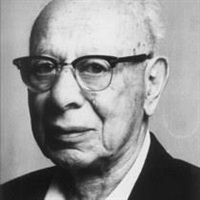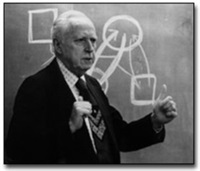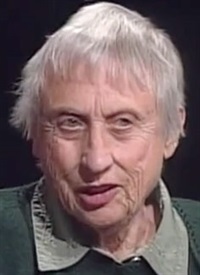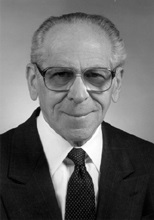EP85 Case Discussion 01 Panel - Bruno Bettelheim, PhD; Murray Bowen, MD; Mary M. Goulding, MSW; Thomas S. Szasz, MD
- Average Rating:
- Not yet rated
- Topic Areas:
- Case Discussions | Psychotherapy
- Categories:
- Evolution of Psychotherapy | Evolution of Psychotherapy 1985 | Pioneers in Couples and Family Therapy
- Faculty:
- Bruno Bettelheim | Murray Bowen, MD | Mary Goulding, MSW | Thomas Szasz, MD
- Course Levels:
- Master Degree or Higher in Health-Related Field
- Duration:
- 45:13
- Format:
- Audio and Video
- Original Program Date:
- Dec 11, 1985
- License:
- Never Expires.
Description
Description: This panel of expert therapists explores a complex case of a woman navigating family challenges, guilt, and personal growth after her mother's death, revealing diverse therapeutic approaches and insights into family dynamics.
Moderated by William R. McLeod, MD.
Educational Objectives:
- To compare and contrast clinical and philosphical perspectives of experts.
*Sessions may be edited for content and to preserve confidentiality*
Credits
Handouts
|
Timestamped Transcript
(2.1 MB)
Annotated AI transcript of audio. |
20 Pages | Available after Purchase |
| Timestamped Transcript (906.6 KB) | 23 Pages | Available after Purchase |
| Ericksonian Learning Snapshot (274.9 KB) | 3 Pages | Available after Purchase |
Faculty

Bruno Bettelheim Related Seminars and Products
Bruno Bettelheim (August 28, 1903 – March 13, 1990) was an Austrian-born self-educated psychoanalyst who spent the bulk of his academic career from 1944 to 1973, as a professor of psychology at the University of Chicago and director of the Orthogenic School for Disturbed Children.[2][3]
He is perhaps best known for his essay The Uses of Enchantment (1976), which applied Freudian psychology to fairy tales and won the 1976 National Book Critics Circle Award for Criticism and the 1977 National Book Award in category Contemporary Thought.[4][5]Bettelheim wrote a number of articles and books on psychology for more than 40 years and had an international reputation on such topics as Sigmund Freud and emotionally disturbed children.

Murray Bowen, MD Related Seminars and Products
Murray Bowen (31 January 1913 in Waverly, Tennessee – 9 October 1990) was an American psychiatrist and a professor in psychiatry at the Georgetown University. Bowen was among the pioneers of family therapy and founders of systemic therapy. Beginning in the 1950s, he developed a systems theory of the family. From 1954 to 1959, Bowen worked in the National Institute of Mental Health, Bethesda, Maryland, where he continued to develop the theory that would be named after him: Bowen Theory.[4] At that time, family therapy was still only a by-product of theory. Bowen did his initial research on parents who lived with one adult schizophrenic child, which he thought could provide a paradigm for all children. After defining the field of family therapy he started integrating concepts with the new theory. He claimed that none of this had previously been described in the psychological literature. What began the first year became known nationally in about two years.
From 1959 to 1990 he worked at the Georgetown University Medical Center in Washington DC as clinical professor at the department of Psychiatry, and later as director of Family Programs and founder of a Family Center.

Mary Goulding, MSW Related Seminars and Products
Mary Goulding, MSW, is one of the leading exponents of Transactional Analysis. Along with her husband Robert Goulding, she developed an approach called Redecision therapy which synthesizes Transactional Analysis and Gestalt. Together they founded the Western Institute for Group and Family Therapy in Watsonville, California, and co-authored two professional books about their approach. There is also an edited volume about the Redecision model. Mary has served as a member of the Board of Trustees of the International Transactional Analysis Association and is a Teaching Member of that organization. Her M.S.W. was granted in 1960 from the School of Social Welfare, University of California, Berkeley.

Thomas Szasz, MD Related Seminars and Products
Thomas S. Szasz, (M.D., University of Cincinnati, 1944) was Professor of Psychiatry at the State University of New York, Upstate Medical Center in Syracuse. He was recipient of numerous awards, including the Humanist fo the Year Award from the American Humanist Association and the Distinguished Service Award from teh American Institute for Public Service. He has received a number of honorary doctorates and lectureships, and served on the editorial board or as consulting editor for ten journals.
Szasz has authored approximately 400 articles, book chapters, reviews, letters to the editor and columns. He has written 19 books.


